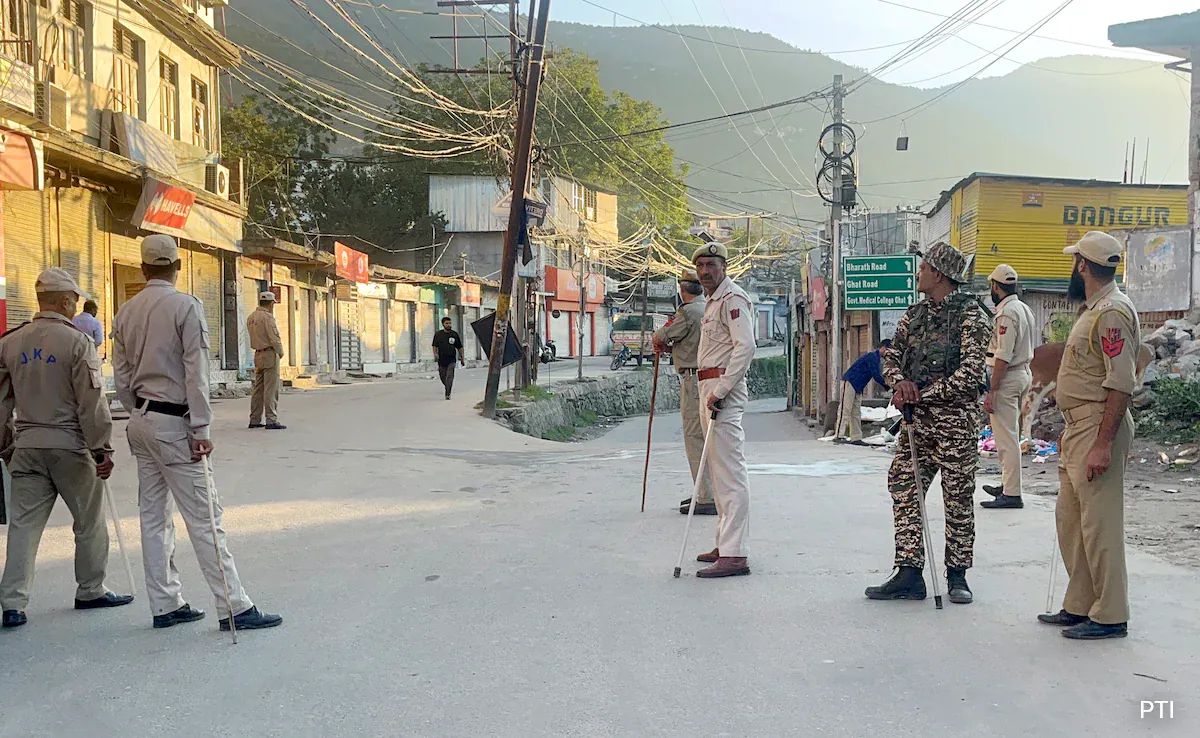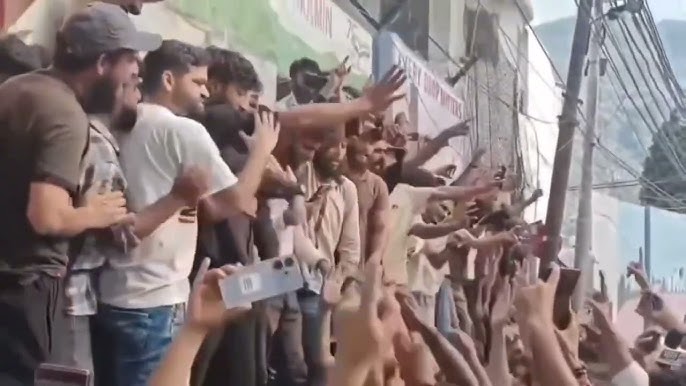Day 4: Doda Under Siege
By: Javid Amin | 12 September 2025
For the fourth consecutive day, Jammu & Kashmir’s Doda district is under a strict curfew and communication blackout. What began as a wave of protests against the detention of AAP MLA Mehraj Malik under the Public Safety Act (PSA) has now spiraled into a full-blown district-wide lockdown.
-
Educational institutions remain closed until Sunday.
-
Shops, markets, and offices in Bhaderwah, Gandoh, and Thathri are shuttered.
-
Internet and mobile services remain suspended, cutting off families from communication and businesses from transactions.
-
Over 80 people—including women—have been detained for participating in or organizing protests.
The administration describes these as “precautionary measures”, but for locals, it feels like collective punishment.
Security Measures & Restrictions
Authorities have deployed additional forces in sensitive areas such as Chilli Pingal, Kahara, and Thathri, turning the district into what residents describe as a “fortress”.
Key restrictions include:
-
No gatherings of four or more persons under Section 163 of the BNSS Act.
-
Ban on provocative slogans, speeches, and gestures.
-
Prohibition on carrying sticks, weapons, or even household tools in public.
-
Concertina wires block access to government offices and key intersections.
Police patrols continue to urge residents to stay indoors, warning of strict action against violators.
Religious Undercurrents: The Hazratbal Emblem Fallout
The unrest in Doda cannot be viewed in isolation. It is unfolding against the backdrop of the Hazratbal shrine emblem controversy, where the installation of a government emblem at one of Kashmir’s most sacred shrines has deeply offended local religious sentiments.
For many, Malik’s detention was not just about his social media criticism of officials—it was a broader signal to dissenters: challenge the administration on sensitive issues, and you risk preventive detention.
This has triggered solidarity protests across:
-
Rajouri
-
Poonch
-
Kishtwar
-
Parts of Jammu city
The Political Fallout: A Flashpoint Beyond Doda
The detention of Mehraj Malik under PSA has shaken the political and civil landscape of Jammu & Kashmir. Malik is now the first sitting MLA to be booked under the PSA, a law that allows detention without trial for up to two years.
Political leaders across party lines have reacted strongly:
-
Farooq Abdullah (NC President): Called it an “assault on democratic rights”.
-
Omar Abdullah (Former CM): Warned that “if an MLA can be silenced under PSA, no Kashmiri is safe from misuse of law”.
-
M.Y. Tarigami (CPIM): Termed it a “black law weaponized against elected representatives”.
-
AAP MP Sanjay Singh: Himself placed under house arrest in Srinagar while protesting, declared the detention “illegal and dictatorial”.
This has become a test case for democracy in Kashmir: if elected representatives can be jailed without trial, what space remains for dissent and public representation?
Impact on Education, Economy & Daily Life
The education sector has been hit hard. Schools across the district remain closed for safety, leaving thousands of children cut off during crucial months of the academic calendar.
The local economy—already fragile—has been paralyzed:
-
Small traders and shopkeepers report total income loss for four consecutive days.
-
Apple and walnut growers in rural areas face transport blockades, unable to move produce.
-
Internet suspension has frozen digital payments, e-commerce orders, and online classes.
Residents describe the atmosphere as “a lockdown within a lockdown”, recalling memories of the 2019 clampdown post-Article 370 abrogation.
What This Signals for J&K
This is no longer a law-and-order problem alone. The episode is a constitutional flashpoint that highlights:
-
The erosion of democratic safeguards when preventive detention laws like PSA are used against elected leaders.
-
The shrinking space for protest and expression, with internet blackouts as the default tool of control.
-
The growing disconnect between governance and public sentiment, especially in sensitive districts like Doda.
For Kashmiris, it signals that religious autonomy, political rights, and civil liberties are being simultaneously compressed.
The Bottom Line
The fourth day of lockdown in Doda is not just about a curfew—it’s about the state of democracy in Jammu & Kashmir. Mehraj Malik’s detention, mass arrests, internet shutdowns, and restrictions on movement reflect a deeper struggle between centralized authority and local representation.
Unless addressed with sensitivity, accountability, and dialogue, the crisis risks deepening alienation in a region already scarred by years of mistrust.



